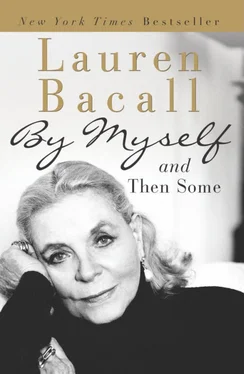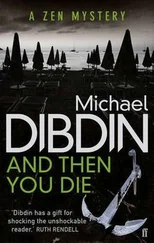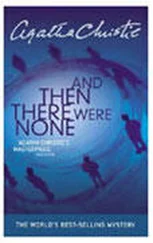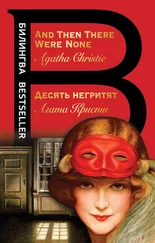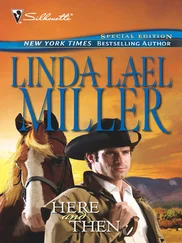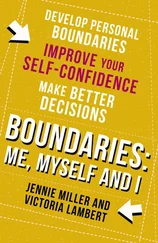In the more than twenty years that followed, our friendship solidified. As we got to know each other better, we became more open and I became more relaxed. The fact is I was always in awe of both John Gielgud and Alec – also, in actuality, in awe of almost all British actors when I first met them. Laurence Olivier in particular, of course. That friendship having begun in the early fifties continued until his death. When ‘How do you do’ progressed to telephone numbers exchanged – flowers sent – lunches shared – friendships flowered. I am now, at this point in my own life, so grateful for those friendships, for the many of life’s graces they unknowingly taught me – among which were that manners were not forever a thing of the past, that laughter was not always at the expense of somebody else, that intelligence – the reading of books in this computerized, robotic world – still counts, that quality and character can prevail and that status and acquisition are not and should not be a goal. Alec loved to wake up in his simple country house – to hear and watch the birds – to have a leisurely breakfast – a walk on a country road – a good book – a glass of wine and a good meal.
In 1993, I had the immense good luck to work with Alec for the BBC. Charles Sturridge, a fine young British director, came over to New York to give me details on A Foreign Field , a wonderful piece about revisiting Normandy and Omaha beach after World War II. Jeanne Moreau was also to star and Leo McKern. Can you imagine such a proposal? Working with Alec Guinness and Jeanne Moreau in a really interesting and first-rate bit of writing and an excellent part for me. I was more than thrilled to be included. It meant a month in Normandy – all living in a beautiful chateau, dining together nightly. Alec always waited for me before going into the dining room. Impeccably dressed – a blazer with waistcoat underneath, perfectly pressed trousers – the definitive English gentleman. And would I like a cocktail? We-ell… a light vodka on the rocks, perhaps. Even if I didn’t want it, I didn’t want to disappoint Alec. So we would have our ‘cocktail’ and then go into dinner. Alec was the kind of man who would stand when you entered the room, and pull your chair out (not from under you) so you could sit at your place for dinner.
My first day of shooting was with Alec. I was a nervous wreck. It was a short scene – a brief exchange between us at the door to his room: he on the inside, me on the out. When Charles Sturridge called action, I walked to Alec’s door – knocked – he opened it and became the character he was playing so completely that the English Gentleman totally disappeared. And I began to tremble, like the kid I was when I started in pictures. I think it was because I suddenly realized I was in this movie for the BBC with the brilliant Alec Guinness and would I be good enough? That terrible insecurity from my beginnings reared its ugly head after all these years.
I guess a true sense of self-confidence is not in the cards for me. At least in certain special situations. It’s a different kind of nervousness – not like opening night in the theatre. I think it’s reverting subconsciously to my first dreams of becoming an actress – of being so star-struck. After watching for so many years Laurence Olivier, Ralph Richardson, Vivien Leigh, Gielgud, Guinness and more – to find myself meeting them – being accepted by them as one of them, no less – was quite unbelievable to me. And upon working with any of them – at the beginning I became eight years old.
Anyway – the working with Alec and Jeanne Moreau – everyone – turned out splendidly. The piece itself was high quality television and the entire experience was a marvel – a highlight for me. And, of course, it brought Alec and me closer together. From then on we were always in touch, mostly when I came to London, always at Christmas. I would call him when I was heading his way, and he always came to town so we could have a long lunch or dinner together. The last time I was in London, I rang him and for the first time he said he didn’t think he could come up; Marella had been ill and doctors were coming to see her. I was of course saddened, but understanding. About two days after our conversation, I was emerging from the elevator in the Connaught Hotel. I brought my room key to the concierge and as I glanced toward the hotel entry, I saw a man who looked like Alec rush into a taxi. I ran outside and asked the doorman if that had been Alec Guinness. Imagine my surprise when he told me indeed it was but he didn’t seem like his usual self. I couldn’t figure it out, couldn’t call anyone without knowing where or who his close friends were. I guess I figured I would hear from him. I wasn’t going to be in London very long, had to get back to New York. I left knowing nothing until less than a week later came the news of Alec’s death.
It couldn’t be. How could it happen so fast? Clearly that’s why he came to London, why he had rushed into a taxi. No warning. Finally my friend Keith Baxter, who had been a close friend of Alec and Marella, came to New York and told me that yes, indeed, it had been quick. Clearly Alec’s personal physician had found that he had cancer and must go up to London and hospital. It was obviously terminal as it was all over in less than a week. Keith said that with Marella at his bedside, Alec said what he hated most was leaving her. In Alec’s worry about Marella, he had forgotten about himself. So, so sad – so touching. And she followed him about three months later.
To lose these two major men in such a short time was painful. My world was getting smaller. Shrinking too fast. And little did I think that the millennium would be the beginning of so many more endings. The chipping away of pieces of your life that had been there for so many years, threading their way through your work life and your personal life. Just as you think you can take a breath again, another jolt comes along. Then I get to thinking that my awareness of and learning to deal with losses started when I was eighteen and nineteen with the loss of my grandmother, followed by my Uncle Jack and my surrogate father Uncle Charlie. You never think of death at those ages – it seems so far away. Then as I moved into my twenties, when a friend became ill – seriously ill – other friends would remind me that I had been with people at least twenty-five years my senior as Bogie had been! I guess that was true then. It is not true now. But I also think how very lucky I have been to have had mostly good health in my life, with interruptions from time to time with physical injuries – nothing life-threatening, usually work related. And the real luck is in knowing and having the great friends I have had and the extraordinary people I have known who have graced my life, enhanced it and enriched it. I am so grateful for that.
So life went on, as it must. I had my children luckily and my work and still some friends that I treasured.
* * *
W ith my emotions at a low ebb, a most unexpected lift to my spirits appeared. A new relationship resulted in a roundabout way from my commitment to Waiting in the Wings . What has turned out to be my lifetime companion arrived in the form of a three-pound, four-legged tri-color beautiful Papillon. During rehearsals of the play, Alexander Cohen had told me he wanted to give me a dog for my birthday. In the mid-Nineties, I had begun a habit of going to the Westminster Dog Show in Madison Square Garden. Not to sit and watch the show as much as to walk behind the scenes where all the dogs are being prepared for the competition. After the loss of my Cavalier King Charles Spaniel in 1984, I was so upset that I couldn’t think of having another dog. Clearly my decision to attend Westminster was the beginning of my need for another four-legged companion. Greg and Veronique Peck had been after me for years to get a Maltese. They had two and took them everywhere when they traveled. When I perused the different breeds at Westminster there were groups of Maltese, pink bows atop their little heads and hair in curlers getting ready for the big event. Show dogs are not the same as other dogs. They are trained to show, to prance around the ring, to stand perfectly still and in position for the judges’ examination. These were so small. Anyway, I’d always had a sneaker for Pekinese.
Читать дальше
